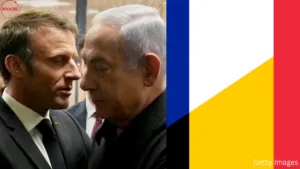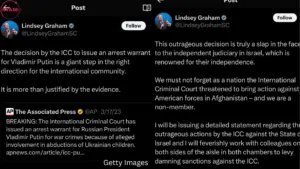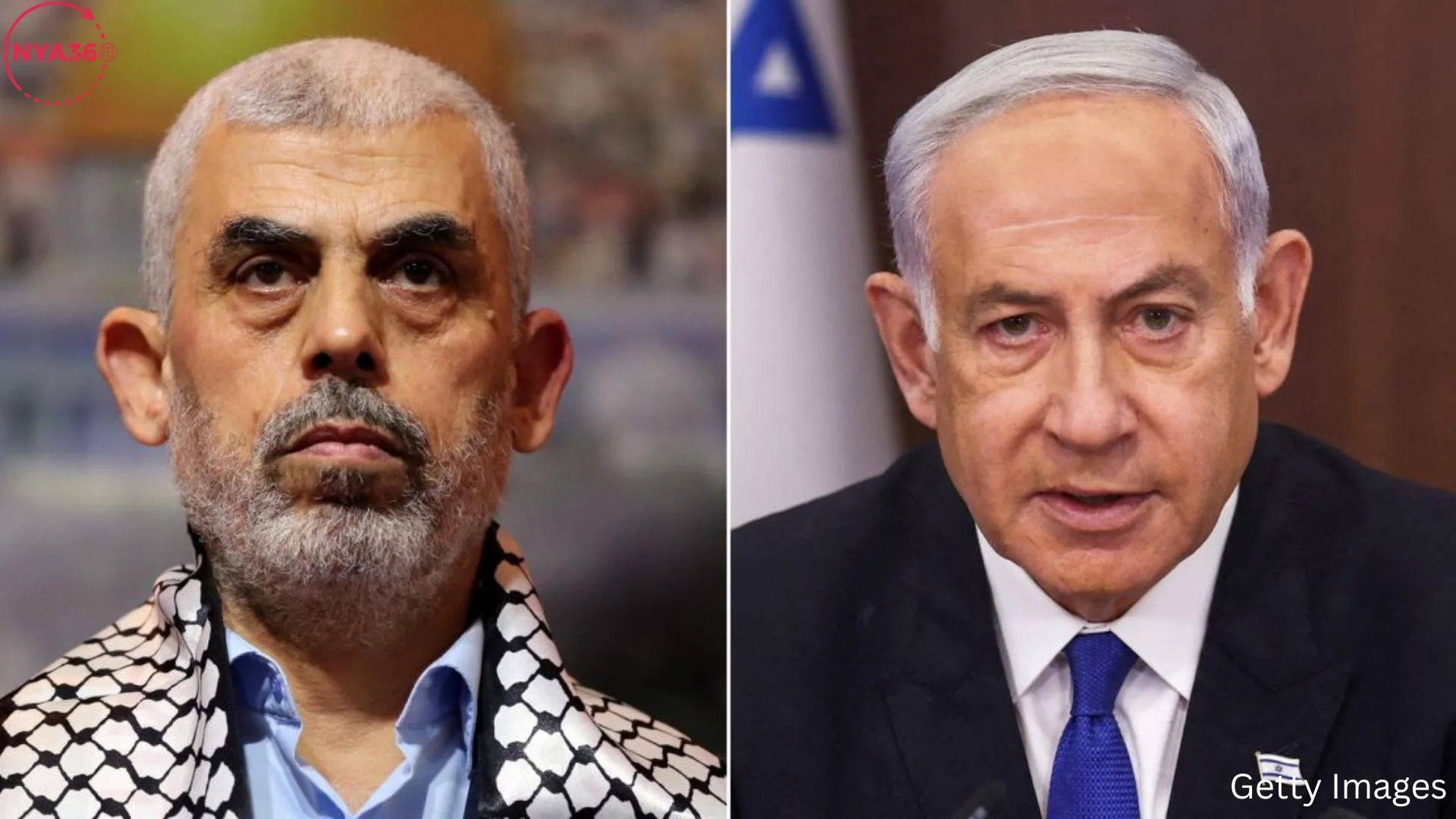Israeli Prime Minister Benjamin Netanyahu has been charged with war crimes in the occupied Palestinian territories by the International Criminal Court (ICC), which has issued an arrest warrant for him. This development has generated considerable political repercussions and ignited an intense international debate. The decision has elicited strong opposition from some and widespread support from others, demonstrating the contentious and intricate nature of international justice.
Charges Led by the ICC
The arrest warrant for Netanyahu was issued by the prosecutor of the International Criminal Court, Karim Khan, who cited substantial evidence of war crimes against him. The evidence included disproportionate assaults on civilians, unlawful demolitions, and obstruction of humanitarian aid in Palestine. This determination is the result of human rights organizations and years of preliminary investigations’ escalating pressure to hold Israeli leaders accountable for their conduct during the conflict.
Amal Clooney, the spouse of the renowned international human rights attorney

Several legal professionals, including actor George Clooney, advised the ICC on this momentous decision. Her participation highlights the case’s prominence and the grave legal ramifications it entails.
Worldwide Reactions
Globally, the ICC’s decision has provoked intense reactions. In statements endorsing the arrest warrant, France and Belgium underscored the importance of accountability and justice in international conflicts. These declarations exemplify a more extensive European dedication to safeguarding human rights and international law.

In contrast, the response from the United States has been notably divergent, with Senator Lindsey Graham, a prominent figure in American politics, being among the most vocal in opposition. Distinguished for his unwavering endorsement of Israel, Graham has reacted in a relentless and unyielding fashion.
Reply of Senator Lindsey Graham
Senator Graham unequivocally condemned the actions taken by the ICC against Netanyahu in his statement. The speaker commenced by emphasizing the autonomy of the Israeli judiciary, characterizing it as one of the most resilient and self-reliant legal systems on an international scale. Graham calls the International Criminal Court’s decision “a slap in the face” to this judiciary, which demonstrates his confidence in Israel’s ability to resolve its own legal and ethical issues internally.
Graham further alluded to previous threats made by the International Criminal Court (ICC) to bring American forces in Afghanistan to justice, reminding his audience that the United States is not a member of the ICC. His current opposition to the actions of the International Criminal Court is situated within a larger narrative of U.S. sovereignty and opposition to international judicial excess, which makes this historical context critical.

The senator conveyed profound dismay and indignation, asserting that the ICC had betrayed him. Graham and his colleagues, according to him, had interacted with the ICC in good faith, believing that ongoing consultations and discussions with Israel would precede any final decisions. By invoking the principle of “complementarity,” which mandates that the International Criminal Court (ICC) permit domestic legal systems to examine matters prior, he suggested that this tenet was disregarded in the Netanyahu case.
Graham disclosed that a meeting between Prosecutor Khan’s team and Israeli officials to deliberate on the allegations had been planned; however, the arrest warrants were unexpectedly issued by the ICC. Graham argued that this violated protocol and trust, which not only harmed the peace process but also the ICC’s credibility.
Graham pledged in his initial statement to provide a more comprehensive response and to collaborate with his colleagues of both political parties to enforce substantial sanctions against the ICC. His dedication to advocating for bipartisan action demonstrates his profound concern for this matter and his resolve to safeguard the sovereignty and legal procedures of Israel.
More General Implications
The intricate dynamics among national sovereignty, geopolitical alliances, international law, and national sovereignty are underscored by the ICC’s ruling and the subsequent responses. International justice is required, according to proponents of the ICC’s actions, to address offenses that domestic prosecution systems fail to adequately prosecute. They argue that the International Criminal Court (ICC) serves as a vital accountability mechanism in conflicts that cause significant harm to civilian populations.
Senator Graham, on the other hand, considers the actions of the International Criminal Court to be an overreach that violates the sovereignty of countries with established and independent judicial systems. This viewpoint holds significant weight in the United States, where a longstanding skepticism exists regarding the involvement of international judicial organizations in domestic matters.

Additionally, the controversy highlights the political aspects of international justice. The divergent responses to the arrest warrants issued by the International Criminal Court against Netanyahu and Vladimir Putin expose latent geopolitical tensions and alliances. Graham endorsed the International Criminal Court’s warrant for Vladimir Putin, perceiving it as a justifiable reaction to Russia’s conduct. However, his dissent towards the warrant for Benjamin Netanyahu serves to underscore the intricate and inconsistent nature of global affairs.
The issuance of an arrest warrant for Israeli Prime Minister Benjamin Netanyahu by the International Criminal Court has incited a tumult of international responses, ranging from vehement opposition in the United States to support in Europe. The significant political and diplomatic ramifications of this decision are exemplified by Senator Lindsey Graham’s vehement condemnation and commitment to pursue sanctions against the ICC. Amidst the tumultuous circumstances that the international community is confronted with, the delicate equilibrium between national sovereignty and accountability for war crimes continues to be a source of contention and an unresolved matter. The forthcoming months will probably witness additional discussions and efforts to influence the trajectory of geopolitical relations and international justice.
Follow us on social media: Instagram, Threads & Twitter X @nya360_ YouTube & Facebook @nya360.





